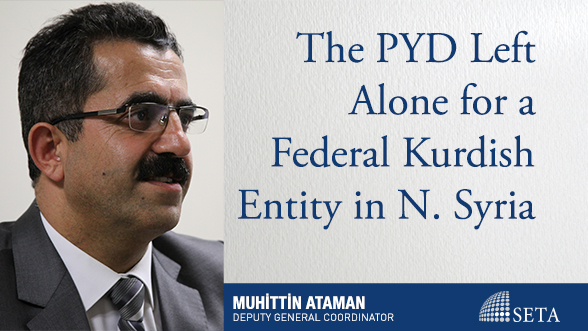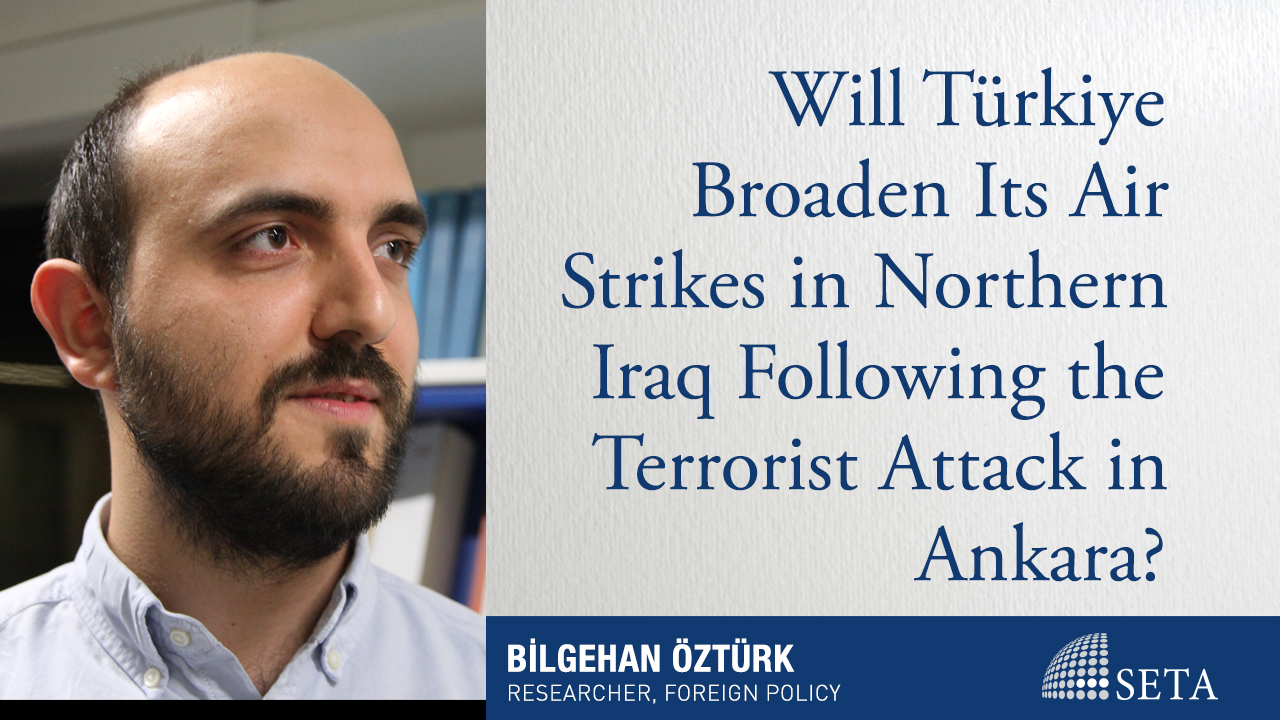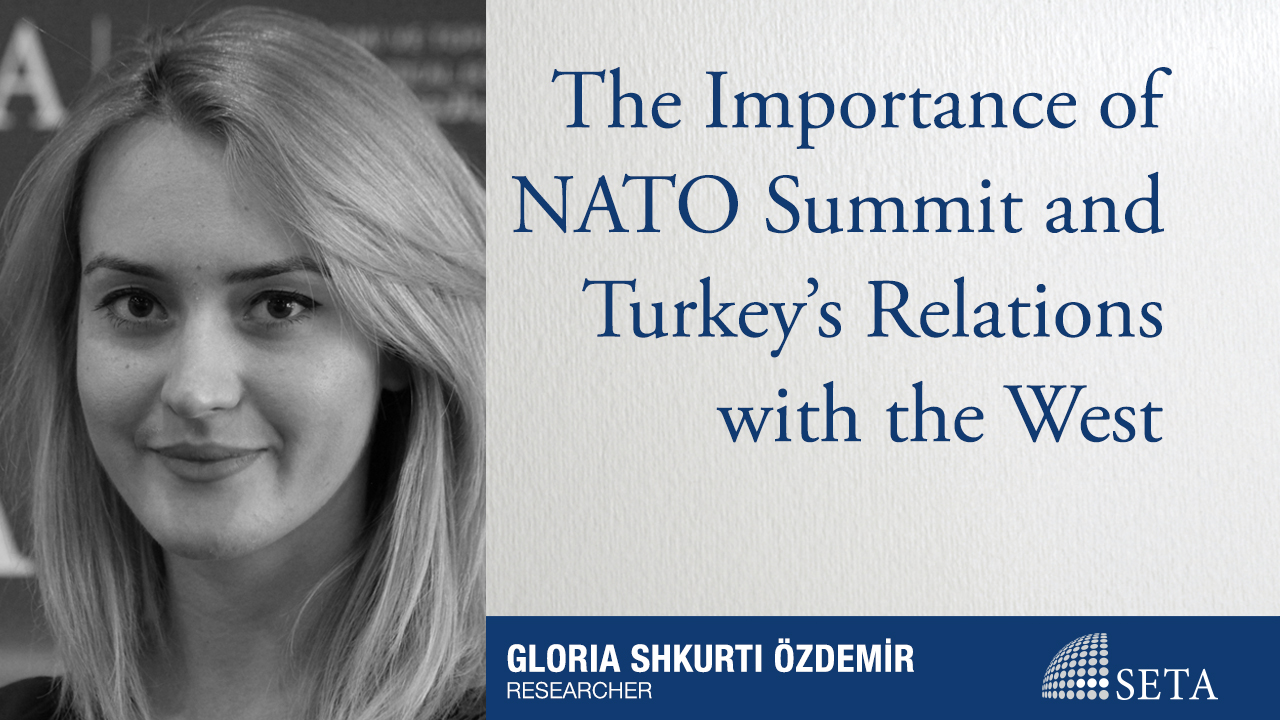
The PYD Left Alone for a Federal Kurdish Entity in N. Syria
The PYD does not represent the whole Kurds living in the north of Syria and, in fact, a large group of Kurds, escaping from PYD, fled to Northern Iraq, Muhittin Ataman said.
Share
Not invited to peace talks in Geneva, the Kurdish Democratic Union Party (PYD) acts solo and declares a step for a federal entity in Northern Syria.
As the PYD’s plans to establish a federal Kurdish region in the north of Syria, Deputy General Coordinator of the SETA Foundation, Muhittin Ataman joined Al Jazeera’s program "Inside Story" to reflect Turkey’s perspective on this latest development.
Ataman emphasized that PYD and PKK are different organizations under the same coalition umbrella. The fact that both these groups are part of the Union of Communities in Kurdistan (KCK) seems to be concealed lately by many external actors.
The PYD does not represent the whole Kurds living in the north of Syria and, in fact, a large group of Kurds, escaping from PYD, fled to Northern Iraq and live under the control of Barzani, he said. That is why it is misleading to claim that the PYD declaration is not only in the name of Kurds but also includes some Arabs and Christians.
The forced demographic change and the Turkish-Syrian border being claimed by the PKK is a direct threat to the Turkish national security. Moreover, Ataman asserted that the political, ethnical and ideological intimacy between the PYD and the PKK would result in a federal structure which would be a product of PKK rather than of the Syrian Kurds.
He also argued that the fact that there has been a continuous exchange between PYD and PKK forces is undeniable, as it is also the fact that there has been a continuous struggle between the PKK and the Turkish security forces within the Turkish territory, resulting in a crucial threat for Turkish national interest.
According to Ataman, the withdrawal of the Russian forces from the Syrian territory not only accelerated the declaration but it also demonstrated the divergence between Iran and Assad regime on one side and the Russian Federation on the other.
This is not a regional but a global project -probably agreed- by the U.S. and the Russian Federation, Ataman said. SETA Deputy General Coordinator comparing the Syrian Kurds with the Iraqi Kurds, reminded that both regional and global powers supported the establishment of a federal Iraqi state, but this is not the case in Syria. "None of the main regional actors supports an independent, or a semi-independent, political Kurdish entity in Northern Syria," he underlined.
In closing, Ataman reminded Davutoğlu previously had claimed that any gain for the Syrian Kurds would be a gain for Turkey as well. However, Turkey had been very clear in its requests for PYD to distance itself from the PKK and the Assad regime and as well as not to change the demographics in the territories inhabited by multi-ethnic social structures. In one sense, Turkey has opposed the monopolization of the politics and the geography in Northern Syria, and these requests have continuously undermined by PYD.
Tags »
Related Articles








